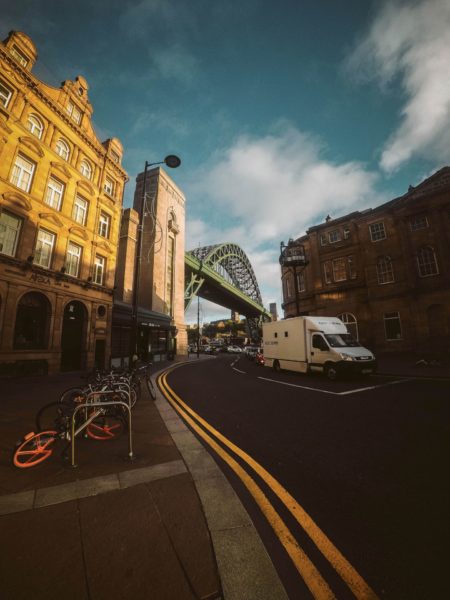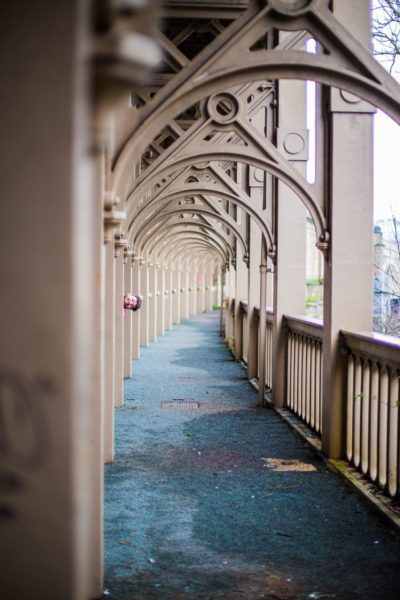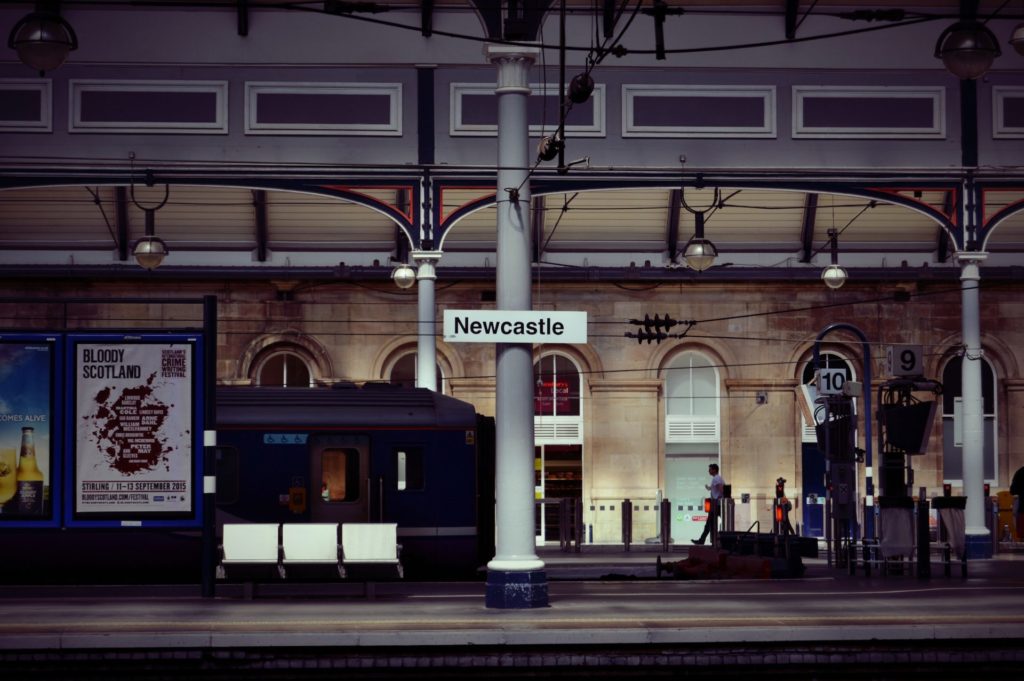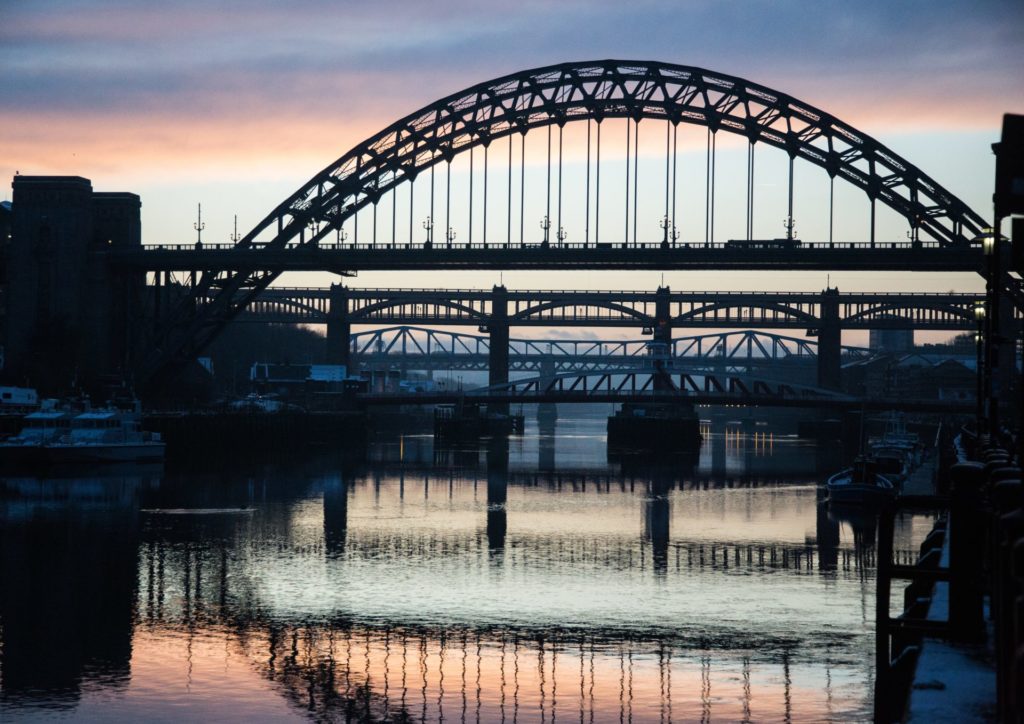Weighing your options and priorities matters just as much as putting together your application.
While I was working on my MA in creative writing, one of my old classmates asked me: How did you apply to your program?
I remember how lost I felt when applying to creative writing programs. Although I asked a lot of different people for help, I was frustrated by how uncertain I still felt about the whole process. Was I doing this right? Were the things I had in my applications good enough?
The easiest way to answer her question was this: I found programs/universities I liked, looked at the website a lot, and put together whatever was required for the application. The longer answer follows.
The Research
I had the luck, but also the limit, of knowing that I wanted to return to Newcastle upon Tyne, the UK city where I did my exchange program. If you know somewhere you’d like to live and write, that’s a good place to start. Programs differ in how much class time you’ll actually have, especially between the US and UK (more on that later), so I think living somewhere you feel you can be inspired is important.
Since I had decided to study in the UK, I didn’t actually need to take the GRE, but I did anyway. I was accepted into a few grad programs in the US that I liked. When you take the GRE, you can send it to a certain number of places for free. After the day of the test, you can add more places to send your scores, which is what I did since I didn’t know everywhere I was applying yet.
Research the programs from various places, and find one that seems to fit your needs as well as your personality as a writer. My top choice after places in the UK was Emerson College in Boston. I visited while considering undergrad colleges and loved it, but decided I wanted to stay closer to home. At the time, I promised myself I’d go there for grad school. They have a great focus on getting you ready for a career after graduation. I also applied to Georgia State University (where I did undergrad), because as a school it still felt like home, and I had some great creative writing professors there.
Some places in the US offer fellowships and teaching assistant positions as part of the program, and that was one drawback for completing my degree in the UK — British universities generally don’t have TA spots, and if they do, they go to PhD students.
Another drawback for my program was the class time. I was enrolled full time and still only had two 2-hour classes a week for a while. I had really wanted to do a lot of workshops while completing my MA, and within the program we barely had any. The focus was supposed to be more on pushing yourself to write as much as possible, while still having time to rework your pieces after private feedback sessions with your tutors.
I was able to audit a course, thus increasing my class time and workshop hours. If you end up somewhere you don’t feel challenged enough, talk to your professors. They’re there to help you increase your experience and knowledge of a subject. They may have ideas of ways you can push yourself more, which is what being in grad school is really about; you’re leading yourself, so you may need to find your own solutions.
Wherever you choose to go, remember to look for opportunities in the area as well as at the school. The city I was in is a great place for writing. There’s a number of different groups and organizations based there — like a writing group that meets every week in different parts of Newcastle, regional organizations, indie presses, etc. I tracked down a small literary journal to become a part of and ended up volunteering my time with them throughout my degree and the next few years, until the journal folded.
|
 Tyne Bridge by Tan Kaninthanond. |
 The Lit and Phil by Michael D. Beckwith. |
 High Level Bridge by Andy Kelly. |
When I was making my final decision, my main concerns were cost and choosing between two crucial factors: one place had professors that interested me more, and the other had class descriptions that did. I chose in favor of the professors.
Based on the professor profiles on the website, there were a lot more tutors who had similar interests to me and seemed like they would be helpful in the types of writing I wanted to pursue.
If a university you’re considering has professor bios, read them. These are the people who will be giving lectures, reading your work, offering tips and comments, and ultimately helping you shape and develop your work.
I realized that a big factor for me in choosing a program was the attention — and intentions — of the professors. Some universities have a lot of prestige, but may also have a reputation for professors who care more about their own research than the classes. Other places may still be developing their program, but the professors can in general be more grounded and interested in their students. Trying to get a feel for this element can be more difficult. When I was choosing between two universities in the same city, I thought back on my experience trying to get in contact to ask about the program. While they’d both responded and been helpful, the one I chose in the end had been much more responsive and shared more detailed information. Their emails had been more personal, rather than formulaic responses, no matter how specific.
In terms of cost, deciding to study in the UK was much less expensive. Although there was the student visa application and fees to contend with — I could probably write a book on the UK visa process at this point — and international students pay higher fees than UK students, the cost still pales in comparison to US grad schools. I just checked the current cost, which has no doubt gone up since I did my MA — $19,363 (£15,000) per year for a one-year program.

Photo by Devon Saccente.
The Personal Letter and Portfolio
Your portfolio and personal letter are really, really important.
I had a friend (who was the current editor of the graduate literary journal at my undergrad university and enrolled in the MA Creative Writing program) look over my personal letter, as well as a few other people. I also read a lot of tips and articles online about personal letters.
This is a small space you use to present yourself as a person and a writer. You are trying to sell yourself, what you can do, and what direction you want to go in with your writing.
Especially with smaller programs, the people reading your application are trying to see if you would fit in well there, if you can excel in the program, and obviously if you’re “good enough” — which is such a subjective thing. They want to know if you’re on your way to developing your own voice as a writer.
I was unlucky with my portfolio — I felt like I hit a really creative span of time, but it was during a class I took in my final undergrad semester. By that point I had nearly finished submitting most of my applications. I had more time for applications for places in the UK, since the deadlines were later.
Different places will have different specifications for its size, and over time you will probably add or take out different pieces, depending on what you’re working on at the time. Some of the most important pieces of earlier versions of my portfolio became less so when I added new work, and some I removed entirely.
You do want to start on the portfolio as soon as you can though. Pick the pieces you think are your best; pick ones you think represent the type of writing you want to focus on, as well as the range of work you can do. Ask a writer or non-writer friend to read them. Imagine performing the piece at a reading, and think about how you’d feel afterwards. Do some editing. Write something new.

Photo by Shaun Darwood.
Seven Years Later
There were things I didn’t like as much about my program, but the thing I cared most about — the quality of the professors — was an indispensable element of my MA. Along with the required tutorials, I was able to schedule additional time to discuss my projects and receive constructive feedback. Regardless of the class descriptions, the courses I completed were led by unique and invested people who celebrated my successes and helped drive my ambition to develop my own craft.
I’m still intermittently in touch with some of these professors, and in the time since they’ve been references for job applications and kept up with me on LinkedIn; I’ve seen them at literary events and attended at least one retirement party; and when I wasn’t chosen for a PhD program, my favorite tutor reached out to me with words of encouragement, urging me not to be disheartened by this setback.
When I decided to focus on the caliber of the professors, I was only thinking about their impact during the program and just afterwards. But the truth is a good degree program will have significance throughout your life, whether in big or small ways.
So what do you want to get out of yours?
